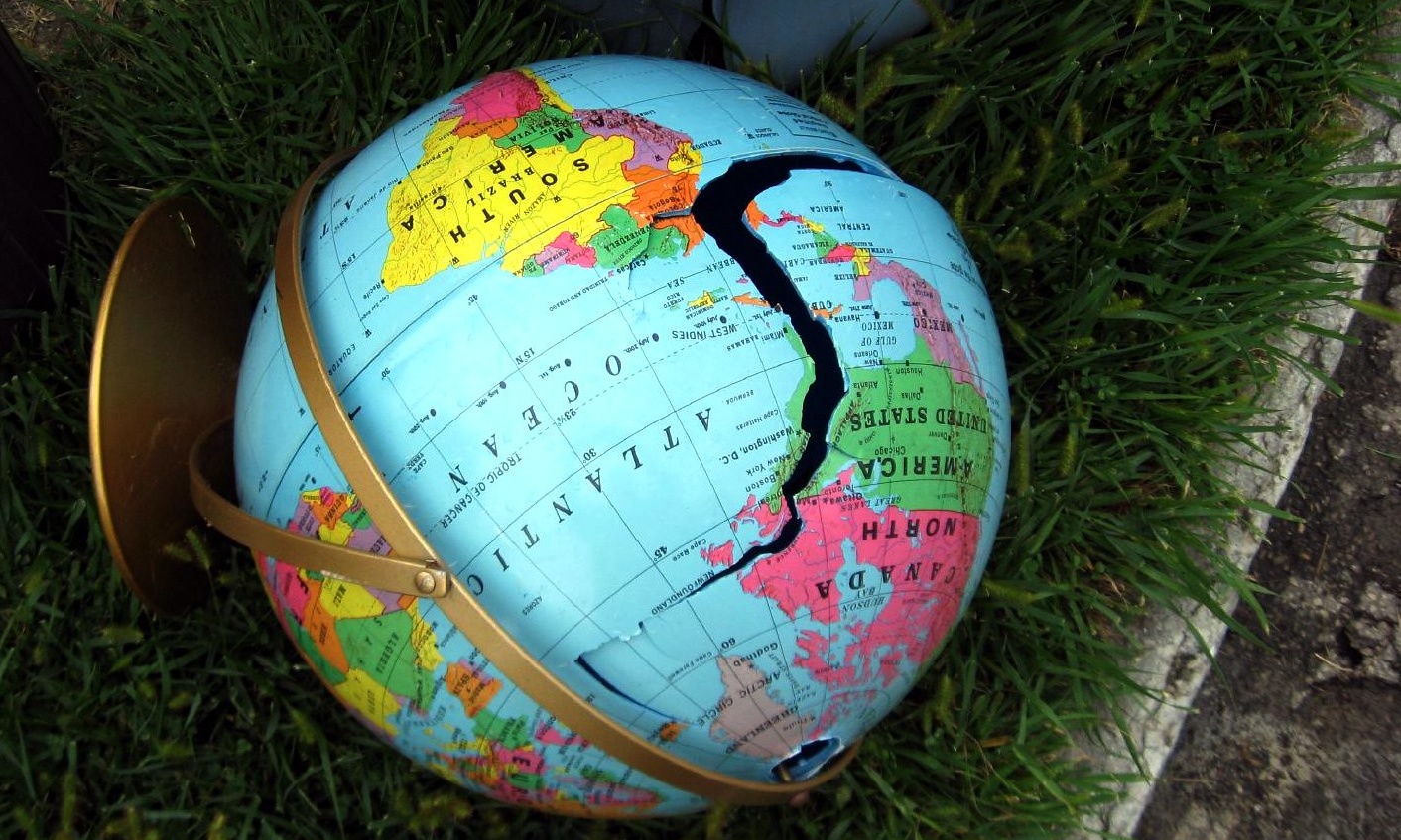
This article first published by the Earth Commission on 9 September 2022
An international research team synthesized evidence for tipping points, their temperature thresholds, timescales, and impacts from a comprehensive review of over 200 papers published since 2008, when climate Tipping points were first rigorously defined. They have increased the list of potential tipping points from nine to sixteen.
The research, published in advance of a major conference “Tipping Points: from climate crisis to positive transformation” at the University of Exeter (12-14 September), concludes human emissions have already pushed Earth into the tipping points danger zone.
Five of the sixteen may be triggered at today’s temperatures: the Greenland and West Antarctic ice sheets, widespread abrupt permafrost thaw, collapse of convection in the Labrador Sea, and massive die-off of tropical coral reefs. Four of these move from possible events to likely at 1.5°C global warming, with five more becoming possible around this level of heating.

Summary Map by Earth Commission/Globaïa: The location of climate tipping elements in the cryosphere (blue), biosphere (green) and ocean/atmosphere (orange), and global warming levels their tipping points will likely be triggered at. Pins are colored according to our central global warming threshold estimate being below 2°C, i.e. within the Paris Agreement range (red, circles); between 2 and 4°C, i.e. accessible with current policies (pink, diamonds); and 4°C and above (purple, triangles).
Lead author David Armstrong McKay from Stockholm Resilience Centre, University of Exeter, and the Earth Commission says,
We can see signs of destabilization already in parts of the West Antarctic and Greenland ice sheets, in permafrost regions, the Amazon rainforest, and potentially the Atlantic overturning circulation as well.
The world is already at risk of some tipping points. As global temperatures rise further, more tipping points become possible. The chance of crossing tipping points can be reduced by rapidly cutting greenhouse gas emissions, starting immediately.
David Armstrong McKay
The Sixth Assessment Report of the Intergovernmental Panel on Climate Change (IPCC), stated that risks of triggering climate tipping points become high by around 2°C above preindustrial temperatures and very high by 2.5-4°C.
This new analysis indicates that Earth may have already left a ‘safe’ climate state when temperatures exceeded approximately 1°C warming. A conclusion of the research is therefore that even the United Nations’ Paris Agreement goal to limit warming to well-below 2°C and preferably 1.5°C is not enough to fully avoid dangerous climate change. According to the assessment, tipping point likelihood increases markedly in the ‘Paris range’ of 1.5-2°C warming, with even higher risks beyond 2°C.
The study provides strong scientific support for the Paris Agreement and associated efforts to limit global warming to 1.5°C, because it shows that the risk of tipping points escalates beyond this level. To have a 50% chance of achieving 1.5°C and thus limiting tipping point risks, global greenhouse gas emissions must be cut by half by 2030, reaching net-zero by 2050.
Co-author Johan Rockström, co-chair of the Earth Commission and director of the Potsdam Institute for Climate Impact Research says,
The world is heading towards 2-3°C of global warming. This sets Earth on course to cross multiple dangerous tipping points that will be disastrous for people across the world. To maintain liveable conditions on Earth, protect people from rising extremes, and enable stable societies, we must do everything possible to prevent crossing tipping points. Every tenth of a degree counts.
Johan Rockström
The researchers categorized the tipping elements into nine systems that affect the entire Earth system, such as Antarctica and the Amazon rainforest, and a further seven systems that if tipped would have profound regional consequences. The latter include the West African monsoon and the death of most coral reefs around the equator. Several new tipping elements such as Labrador Sea convection and East Antarctic subglacial basins have been added compared to the 2008 assessment, while Arctic summer sea ice and the El Niño Southern Oscillation (ENSO) have been removed for lack of evidence of tipping dynamics.
Co-author Ricarda Winkelmann, a researcher at the Potsdam Institute for Climate Impact Research and a member of the Earth Commission says,
Importantly, many tipping elements in the Earth system are interlinked, making cascading tipping points a serious additional concern. In fact, interactions can lower the critical temperature thresholds beyond which individual tipping elements begin destabilizing in the long-run.
Ricarda Winkelmann
Armstrong McKay says, “We have made a first step towards updating the world on tipping point risks. There is an urgent need for a deeper international analysis, especially on tipping element interactions, towards which the Earth Commission is starting a Tipping Points Model Intercomparison Project (“TIPMIP”).”
Access the full article in Science here.
More information:
The research will be discussed at a major conference, “Tipping Points: from climate crisis to positive transformation” at the University of Exeter 12-14 September.
The Earth Commission is an international team of leading natural and social scientists and five working groups of additional experts. The Commission is led by three distinguished professors: Johan Rockström, Joyeeta Gupta and Dahe Qin.
Future Earth is a major international research platform providing the knowledge and support to accelerate transformations to a sustainable world. Future Earth is an affiliated body of the ISC.
Image by elycefeliz on Flickr